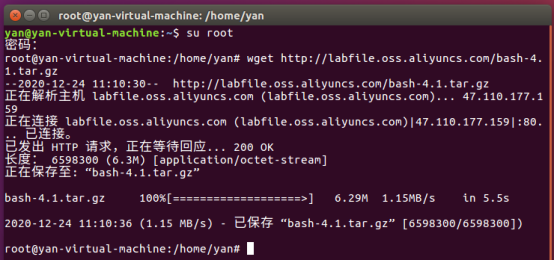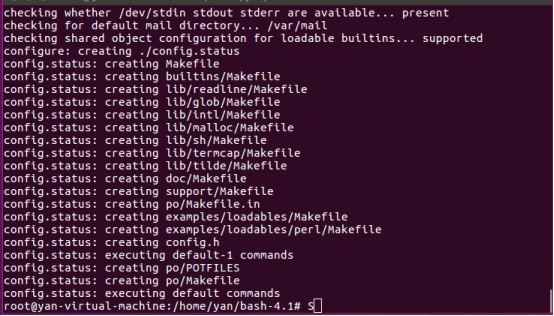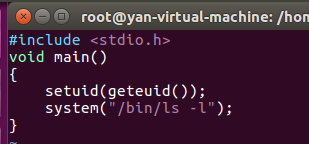作业信息
| 这个作业属于哪个课程 | <2020-2021-1Linux内核原理与分析> |
|---|---|
| 这个作业要求在哪里 | <2020-2021-1Linux内核原理与分析第十二周作业> |
| 这个作业的目标 | <ShellShock 攻击实验> |
| 作业正文 | 本博客链接 |
实验
实验环境准备
由于bash4.2版本以上的漏洞已经被堵上了,所以安装4.1版本的bash,首先进行文件下载:

文件安装:
./configure

make和make install

链接:

检测漏洞:

建立链接:

实验内容
攻击Set-UID程序
建立shock.c 文件:

编译并设置所有者为root

尝试攻击:

攻击成功
测试
修改相应代码:

再次测试:

结果失败了。这就说明如果 real uid 和 effective uid 相同的话,定义在环境变量中的内容在该程序内有效,那样shellshock漏洞就能够被利用了。但是如果两个 uid 不同的话,环境变量失效,就无法发动攻击了,这可以从 bash的源代码中得到印证(variables.c,在308到369行之间)。
/* Initialize the shell variables from the current environment.
If PRIVMODE is nonzero, don't import functions from ENV or
parse $SHELLOPTS. */
void
initialize_shell_variables (env, privmode)
char **env;
int privmode;
{
char *name, *string, *temp_string;
int c, char_index, string_index, string_length;
SHELL_VAR *temp_var;
create_variable_tables ();
for (string_index = 0; string = env[string_index++]; )
{
char_index = 0;
name = string;
while ((c = *string++) && c != '=')
;
if (string[-1] == '=')
char_index = string - name - 1;
/* If there are weird things in the environment, like `=xxx' or a
string without an `=', just skip them. */
if (char_index == 0)
continue;
/* ASSERT(name[char_index] == '=') */
name[char_index] = '�';
/* Now, name = env variable name, string = env variable value, and
char_index == strlen (name) */
temp_var = (SHELL_VAR *)NULL;
/* If exported function, define it now. Don't import functions from
the environment in privileged mode. */
if (privmode == 0 && read_but_dont_execute == 0 && STREQN ("() {", string, 4))
{
string_length = strlen (string);
temp_string = (char *)xmalloc (3 + string_length + char_index);
strcpy (temp_string, name);
temp_string[char_index] = ' ';
strcpy (temp_string + char_index + 1, string);
parse_and_execute (temp_string, name, SEVAL_NONINT|SEVAL_NOHIST);
/* Ancient backwards compatibility. Old versions of bash exported
functions like name()=() {...} */
if (name[char_index - 1] == ')' && name[char_index - 2] == '(')
name[char_index - 2] = '�';
if (temp_var = find_function (name))
{
VSETATTR (temp_var, (att_exported|att_imported));
array_needs_making = 1;
}
else
report_error (_("error importing function definition for `%s'"), name);
/* ( */
if (name[char_index - 1] == ')' && name[char_index - 2] == '�')
name[char_index - 2] = '('; /* ) */
}
摘出其中关键部分并简化:
void initialize_shell_variables(){
// 循环遍历所有环境变量
for (string_index = 0; string = env[string_index++]; ) {
/*...*/
/* 如果有export过的函数, 在这里定义 */
/* 无法导入在特权模式下(root下)定义的函数 */
if (privmode == 0 && read_but_dont_execute == 0 &&
STREQN (“() {“, string, 4)) {
[...]
// 这里是shellshock发生的地方
// 传递函数定义 + 运行额外的指令
parse_and_execute (temp_string, name,
SEVAL_NONINT|SEVAL_NOHIST);
[...]
} }
上述那一行判断逻辑导致了两者的不同,primode即私有模式,要求real uid 与 effective uid保持一致。